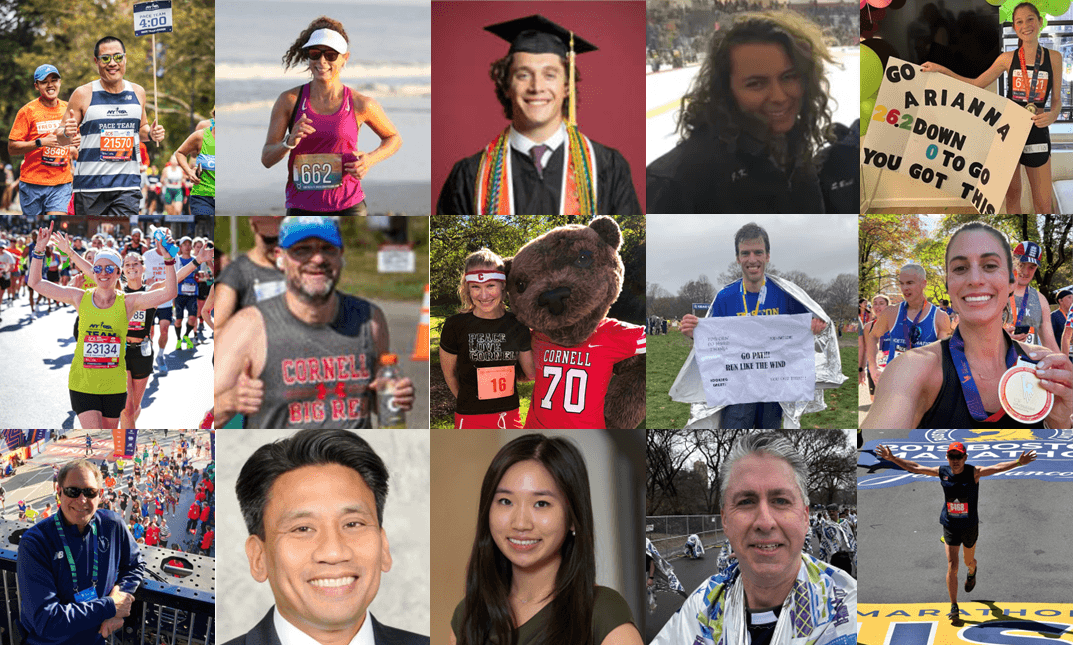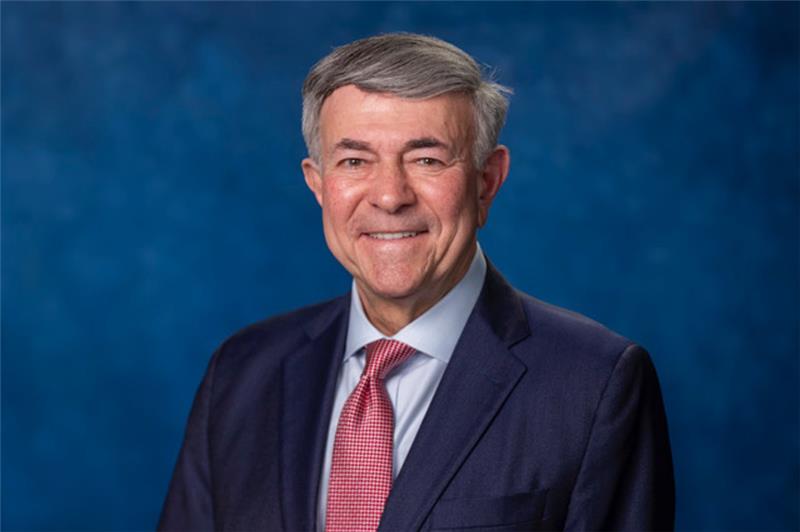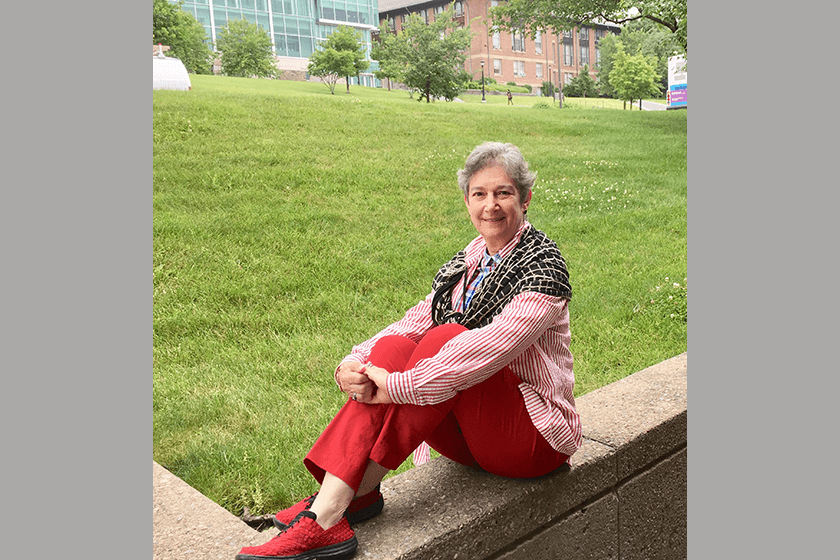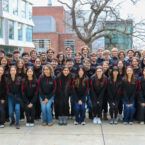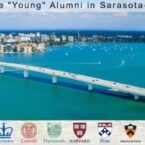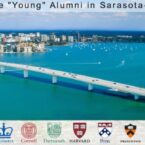When he founded Saxbys in 2005, Nick Bayer didn’t just want to compete in a crowded market for caffeinated brews. Bayer wanted his company to stand out for its social impact. Guided by a mission to “make life better,” Saxbys grew from a corner cafe into a successful chain stretching from Georgia to New Hampshire. A longtime Entrepreneur in Residence at Cornell, Bayer seeks to nurture the ambitions and skills of upcoming entrepreneurs. Saxbys runs a pioneering program to empower young leaders by putting students in charge of cafes on college campuses.
What does Saxbys do, and what problem does it solve?
Saxbys strives to make life better. We are a hospitality and social impact company first and foremost, with our efforts primarily rooted in education and opportunity. We’re also a product company. We used to say “coffee company,” but now Saxbys has evolved to become much more than that. It’s the hospitality and the ability to provide a welcoming space for the community to gather and connect that defines us.
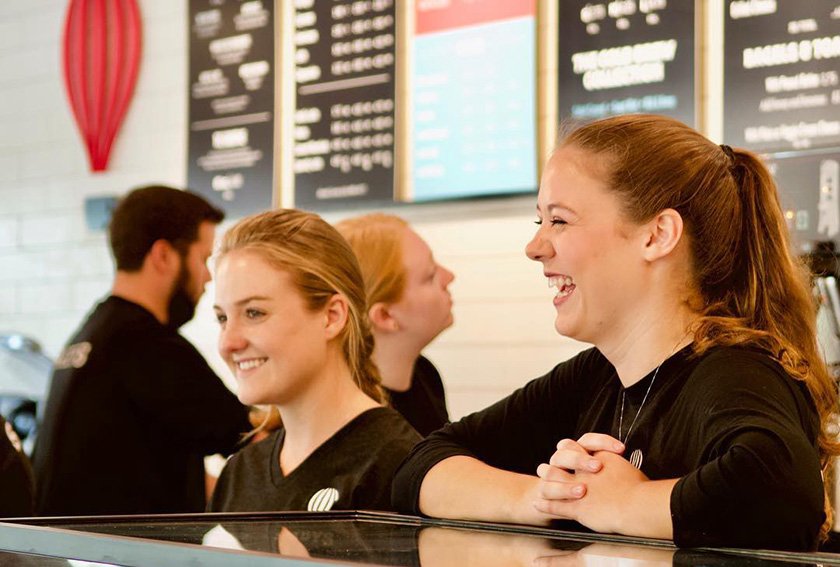
How has your concept for Saxbys evolved?
The initial idea for Saxbys was simple. I love people. I really value relationships and enjoy connecting with people. It eventually occurred to me that you could actually build a business on that. I was drawn to coffee because I wanted to be in a business that was accessible and welcomed all types of people. I later realized that my business strategy could focus on building a company culture committed to hospitality and social impact. That’s where we are today.
What is the Experiential Learning Program, and how does it distinguish Saxbys from other companies?
Our Experiential Learning Program (ELP) is designed to embolden the next generation of changemakers by providing undergraduate students with entrepreneurial opportunities as a supplement to traditional classroom learning. We created the program in 2015 around the belief that the lessons we would teach in our cafes to undergrads and aspiring entrepreneurs would go way further than steaming milk and making lattes. It would foster team development, community leadership and financial management — skills that would help them excel in any industry.
Every Saxbys ELP cafe is exclusively student-run and helmed by a student cafe executive officer (SCEO). The SCEO is empowered to develop their peers into team leaders, implement creative marketing initiatives, strengthen relationships with community organizations and enact change with meaningful social impact outreach. All the while, the students are responsible for managing their peers, overseeing all cafe operations and presenting profit and loss statements monthly to Saxbys’ executive team. The students receive not just wages, but full academic credit as well.
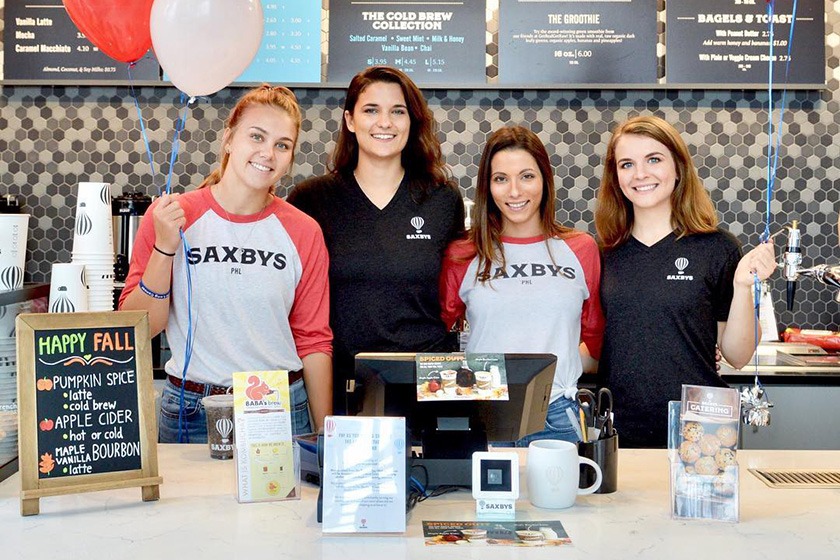
Entrepreneurship is all about taking calculated risks. What’s the most pivotal risk you’ve taken, and how did it change your path?
In order for Saxbys to compete and distinguish itself, we have no choice but to innovate and take risks. Creating and scaling our Experiential Learning Program is one of the biggest risks we’ve taken. We spend an incredible amount of capital and theoretically put our brand at risk to allow exclusively student-run teams to run their own businesses in the middle of their campuses; but because of the culture of Saxbys, the support we provide the students and their commitment and ability to be entrepreneurial, this risk continues to pay off.
What has been your proudest moment as an entrepreneur? Why?
I’m grateful that there are many to choose from, but I’ll go with April 13, 2015. That was the day we debuted the Experiential Learning Program at Drexel University. Watching a team of students come together, work hard, serve their community and develop skills that will help them become effective leaders makes me incredibly proud.
How has your experience at Cornell impacted how you approach business?
Looking back, there are three things I value most. First, the people. I’m still incredibly close with my inner circle of friends from Cornell. They’ve been hugely supportive of both my personal and professional life. The Cornell network is second to none. The second thing is that Cornell was so challenging and competitive. Everybody was really smart, everyone was social and everyone had a lot going on. You either decided to compete and do your best every day or you didn’t. I chose to compete and reach out to really talented people.
Lastly, the Cornell Tradition fellowship has been instrumental in my life since I set foot on campus. I probably wouldn’t have been able to afford Cornell without the financial support the fellowship provided through internship and job opportunities. In the bigger picture, the commitment to doing well by doing good embodied by the fellowship influences everything I do today. Over the past couple of years, Saxbys has set up scholarship funds that are based on the amazing model created by the Cornell Tradition.
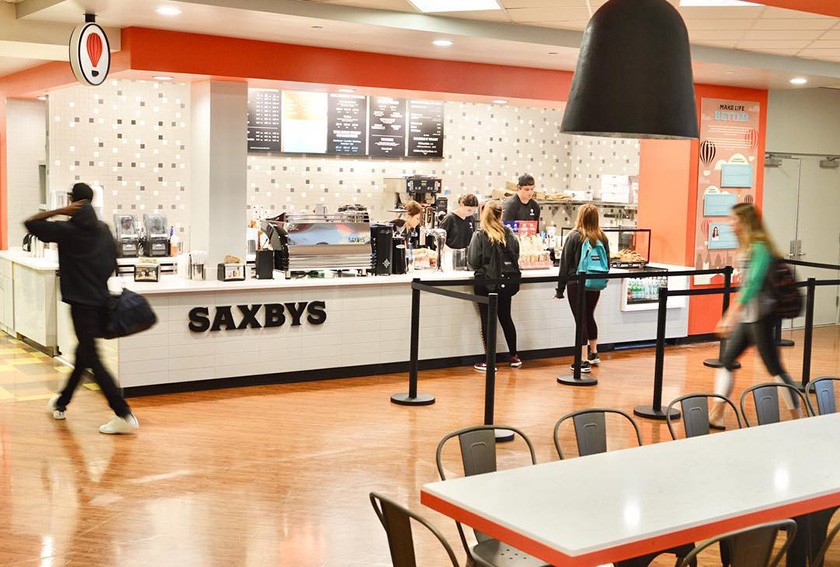
Was there a particular faculty member or class that influenced you the most? If so, how?
My time as an Entrepreneur in Residence at the School of Hotel Administration has been incredibly influential for me as a person and for my business. Former Hotel School dean Michael Johnson and faculty members Neil Tarallo and Susan Fleming have provided inspiration, knowledge and support. The Hotel School, through the Pillsbury Institute for Hospitality Entrepreneurship, was really ahead of the curve in embracing, teaching and supporting entrepreneurship in higher education. I’m grateful for the opportunity to play a role in supporting the next generation of entrepreneurs and leaders at Cornell.
If you had one piece of advice to someone just starting out, what would it be?
At Saxbys we say, “serve yourself by serving others.” Humans are wired to act in their own self-interest, but we truly believe that you’ll get more out of your efforts if they are first directed in the interest of others. We’ve built a business predicated on this philosophy, and it serves us to this day.
Cornell’s expertise in research, technology and business education translates into meaningful impacts in communities around the world. Our mission extends beyond the classroom, helping entrepreneurs access the research and mentorship they need to start and grow successful businesses. Learn more.
This interview was conducted by Savannah Whiting of Cornell Strategic Communications.

